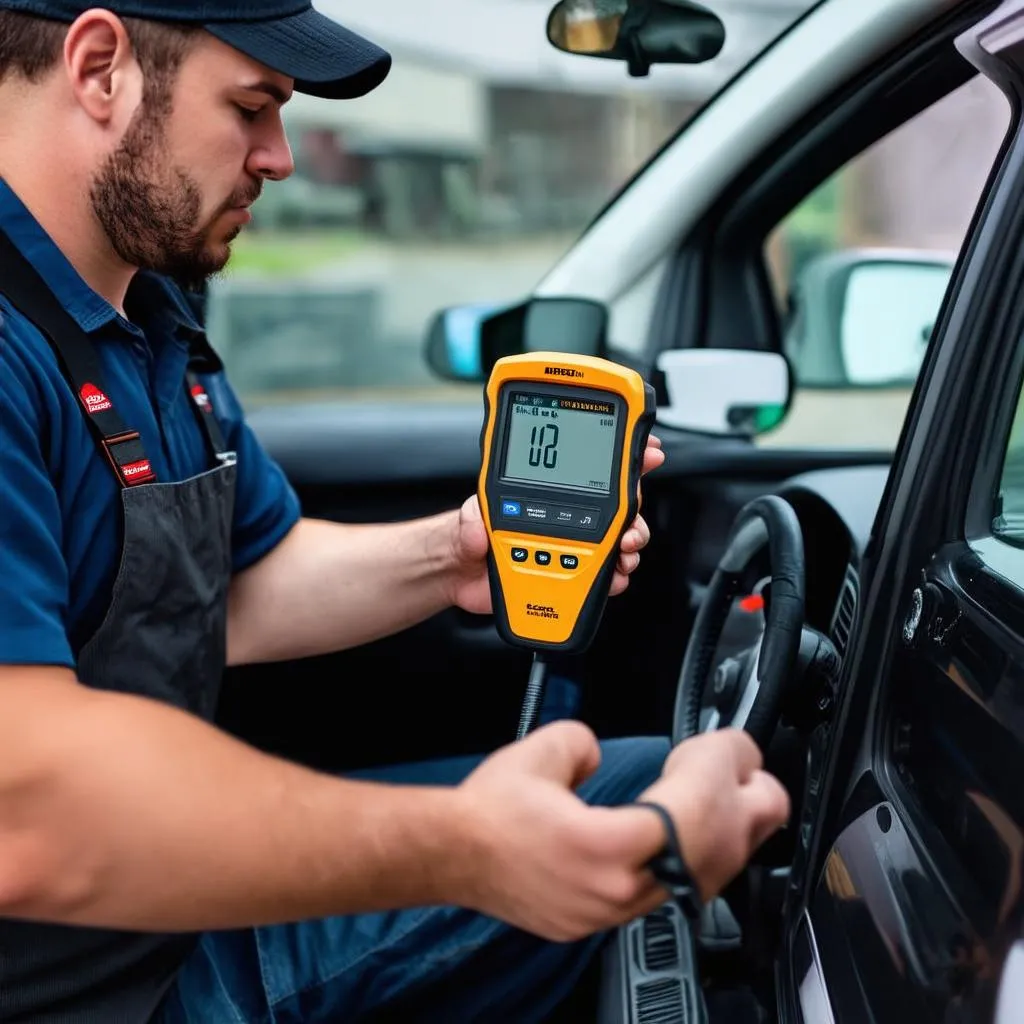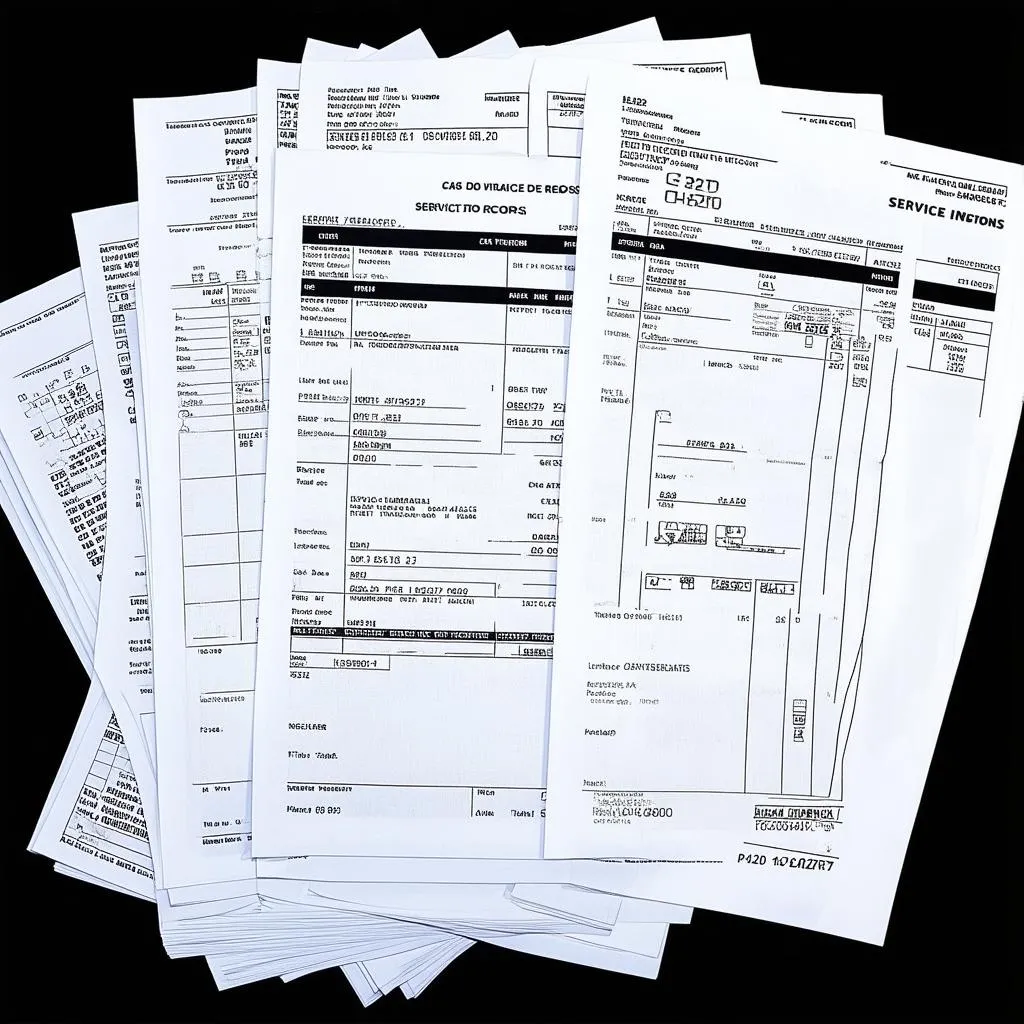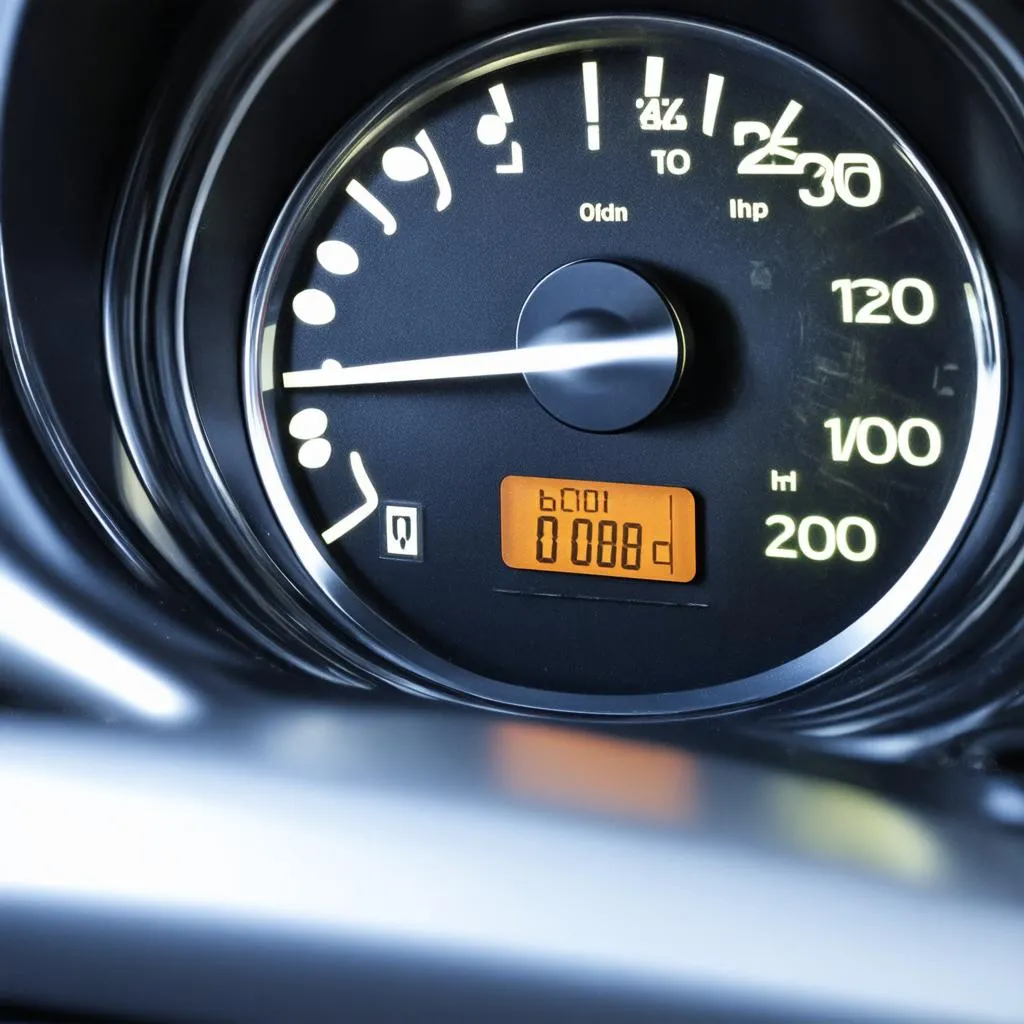Have you ever bought a used car and wondered if the odometer reading was accurate? It’s a common concern, and with good reason. Many car owners have had the misfortune of purchasing a vehicle with a tampered odometer, which can lead to costly repairs and a reduced resale value. So, can an OBD scanner detect rolled-back miles? Let’s dive into the details.
What is OBD and How Does It Work?
OBD stands for On-Board Diagnostics. It’s a system found in most vehicles manufactured after 1996, which monitors various engine and vehicle systems for malfunctions. OBD uses a standardized communication protocol, allowing technicians to access and read diagnostic trouble codes (DTCs) and other vehicle data through a specialized device called an OBD scanner.
Can OBD Detect Rolled Back Miles?
The answer to this question is not straightforward. While OBD scanners can access and read data from a car’s computer, including the odometer reading, they can’t tell if the mileage has been tampered with. OBD scanners primarily focus on engine and system diagnostics, not on detecting fraud or alterations.
However, there are other ways to detect rolled-back miles. These methods often involve consulting with a professional or utilizing specialized software tools. Some indicators of mileage tampering include:
- Inconsistencies in vehicle maintenance records: If the odometer reading doesn’t align with the documented maintenance history, it might be a red flag.
- Unusual wear and tear: A car with a high mileage reading might show signs of excessive wear and tear, which can be inconsistent with the reported odometer.
- Examining the odometer itself: Experienced mechanics can often identify signs of tampering by closely examining the odometer and its components.
Why Mileage Tampering Is a Problem
Mileage tampering is a serious issue that can have significant repercussions:
- Deception and financial loss: Consumers may be misled into purchasing a vehicle at a higher price than it’s truly worth.
- Safety concerns: A car with tampered mileage might have hidden wear and tear, which can pose a safety risk.
- Reduced resale value: A vehicle with a rolled-back odometer will be harder to sell and will likely fetch a lower price.
What Can You Do?
When purchasing a used car, it’s crucial to take steps to protect yourself from potential mileage fraud:
- Get a vehicle history report: Services like Carfax and AutoCheck can provide valuable information about a vehicle’s history, including accident records and mileage readings.
- Have the car inspected by a trusted mechanic: A qualified mechanic can examine the vehicle’s condition and assess whether the odometer reading seems accurate.
- Ask for documentation: Request maintenance records, previous service invoices, and any other documents that can support the odometer reading.
Common Questions about Mileage Tampering
Here are some frequently asked questions about mileage tampering:
- Is it legal to roll back the odometer? No, mileage tampering is illegal in many countries, including the United States.
- Can you roll back the odometer yourself? While it’s possible to manipulate an odometer, it’s illegal and can lead to serious consequences.
- How can I avoid buying a car with a rolled-back odometer? Use a combination of the methods mentioned above, such as getting a vehicle history report and having the car inspected by a professional.
- What are the penalties for rolling back the odometer? Penalties for mileage tampering can vary depending on the jurisdiction, but they can include fines, jail time, and even the forfeiture of the vehicle.
Seeking Professional Help
If you have any doubts about the accuracy of a vehicle’s mileage or suspect potential tampering, it’s essential to seek professional help. Contact a reputable mechanic or a car dealership for assistance.
Let’s Talk About Karma
Some believe that tampering with a vehicle’s mileage can have karmic consequences. The idea is that altering a car’s history creates an imbalance in the flow of energy, which can lead to negative outcomes in the future. While this is a matter of personal belief, it serves as a reminder to always strive for honesty and integrity.
Conclusion
While OBD scanners can access and read various vehicle data, they cannot definitively detect rolled-back miles. To protect yourself from mileage fraud, it’s crucial to conduct thorough research, obtain a vehicle history report, and have the car inspected by a trusted mechanic. Remember, a car’s odometer reading is an essential indicator of its overall condition and value.
 OBD Scanner and Mileage
OBD Scanner and Mileage
If you’re interested in learning more about OBD scanners and diagnostics, check out our other articles on OBD connector location, common OBD codes, and engine trouble codes.
Have you had any experiences with mileage tampering or questions about OBD scanners? Share your thoughts in the comments below!
 Car Maintenance Records
Car Maintenance Records
 Odometer Tampering
Odometer Tampering
If you need help with diagnostics or have any questions about OBD scanners, please reach out to our team via Whatsapp: +84767531508. We’re here to support you with expert advice and guidance 24/7.
